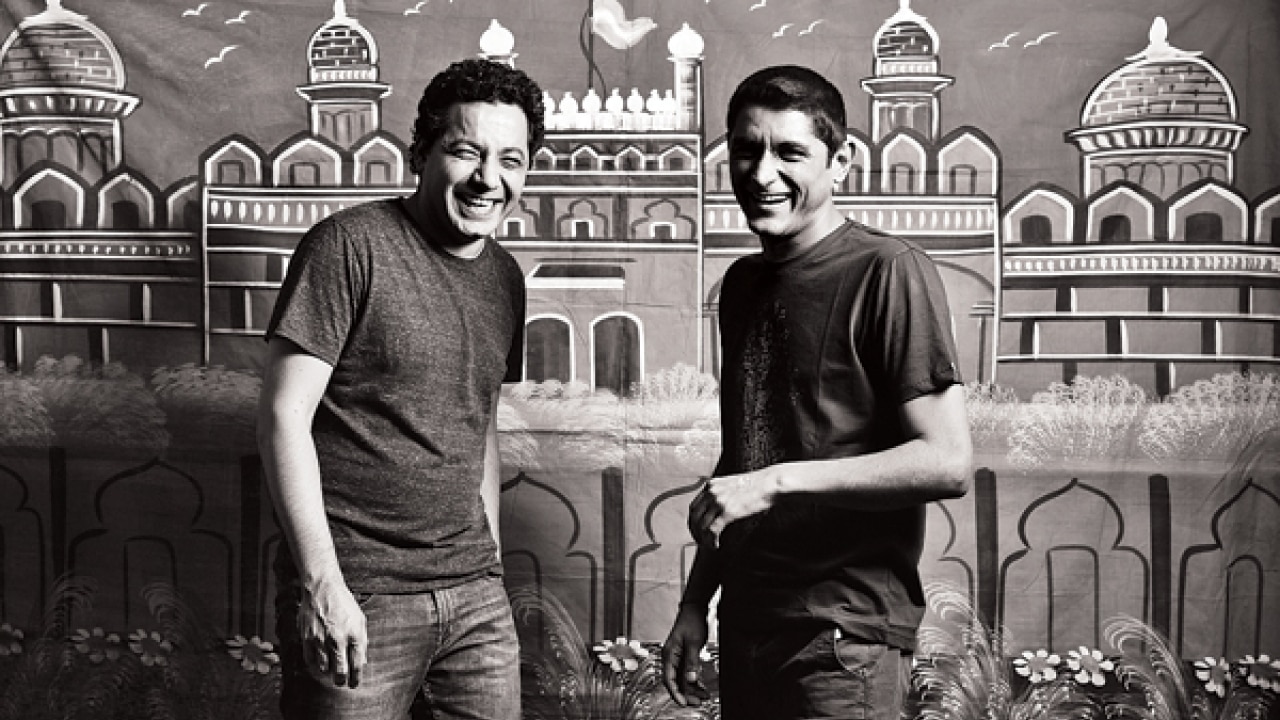
It's been six years too long, but the Midival Punditz – aka Gaurav Raina and Tapan Raj – are back with their fourth studio album, Light. The Delhi-based duo, who laid the foundation for eclectic Indian electronica, have an 18-year-old roster boasting of performances with everyone from Anoushka Shankar and Karsh Kale to Alicia Keys and Norah Jones.
For the nine-track album, releasing on April 28, Midival Punditz collaborated with folk singers Kutle Khan and Malini Awasthi, singer-composer Papon, flautist Pandit Ajay Prasanna and American singer-songwriter Todd Michaelsen. On occasion of their four-city Step Up to Red presents Light Tour, Gaurav Raina spoke about his favourite song off Light, why genres should be done away with and lots more:
Why did you want to make Light a performance-centric, concept record?
CDs are passe. Music today is either consumed online or in clubs. Artists earn 80% of their money through live performances rather than physical record sales. So we decided to make Light a concept album which builds on live music. Tapan and I had played few tracks we'd worked on at NH7 Weekender 2012, and the reception was great. I'd say that was the starting point for Light.
I read that Don't Let Go off this album is close to your heart. Why this one in particular?
We wrote Don't Let Go for a dear friend who succumbed to a strange malarial disease in Bombay. This was when we were right in the middle of making Light. Her death was such a shock — we couldn't think and even stopped working for days. But we eventually decided to honour her with a track. She loved drum and bass, and that's what you hear in Don't Let Go.
Light incorporates a lot of Rajasthani and Punjabi folk, but there's some Carnatic there as well...
Yes, for a song called Rushing. We collaborated with (Kochi-based musician and former Motherjane guitarist, called the 'God of Small Strings') Baiju Dharmajan for that one. Baiju adopts a Carnatic style for the electric guitar, and it's beautiful — like Pink Floyd meeting Mandolin Srinivas. We'd created the song with a Floyd-like bassline and some jazz, with samples of the Carnatic mandolin. We sent it to Baiju, and he built it for us. Rushing is all him.
You released Grey to Silver last year as solo artist GRAIN, because you wanted to focus on English songwriting — something you said wasn't the aesthetic of Midival Punditz. Was it difficult shuttling between two 'identities'?
Not really, but getting into GRAIN mode was challenging. I've been part of Midival Punditz for years – Indian elements come naturally to me. I had to consciously avoid that as GRAIN.
As a pioneer of Indian electronica, what do you make that umbrella term, 'fusion'?
The term 'fusion' is thrown (around) anywhere. Anything and everything becomes fusion. At the end of the day, if you can make good music, it will work – fuse or no fuse (laughs). Tapan and I try giving equal respect to the genres we're fusing. Music has no absolutes...
...which brings me ask about the boxing of music into genres.
Limiting music to genres is an industry thing to do. It's not meant for consumers. Thinking genre-wise limits your creativity. People also tend to jump on bandwagons. You shouldn't do what's working. You should make something work for you.
Midival Punditz is credited with blurring the lines between electro and traditional Indian music. But is there anything you miss about the 'pre-tech' days?
We started making music only because of computers, because we were interested in knowing what we could do with them. But yeah, people don't use real musicians any more. They're work a lot with samples. Everything is so accessible. I can go onto the internet, buy samples, put them in a software, place a beat and make a track. If you're just trying to find a shortcut and use technology and easy availability to do chaalu work, it's no good.
As someone who's performed internationally, which country do you think has a thriving electronica scene?
It used to be London in the '90s, but now it's Germany, hands down. It's a country that promotes arts in a big way, unlike ours. The musicians coming out of Berlin are really talented.
And of the Indian cities you've performed in, which is most receptive to musical experimentation?
Bombay, I think. It used to be Delhi, but the last couple of years made me change my mind. Pune and Bangalore are good too, but Bombay leads the way.
Which Indian musician do you think is underrated or hasn't got his/her due?
There are many talented kids, but they've not done their dues yet. I think they deserve to rough it out a bit more (smiles). Going through the grind teaches you so much. If it comes easy, you tend to take things for granted and believe you're the cat's whiskers. And before you know it, you're making s**t music. But there's Nicholson in Bombay, and Kohra and Jitter in Delhi who're doing very interesting work. Karsh Kale too…
You think he's not got his due?
He could get a lot more (laughs).
Lastly, what are your top five albums of all time?
Two of them are definitely (all things) Prodigy and Chemical Brothers. Then there's Dark Side of the Moon, Thriller and Apparat's The Devil Walk.